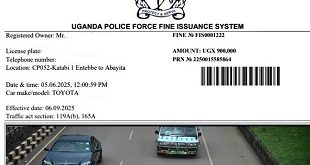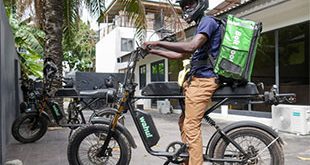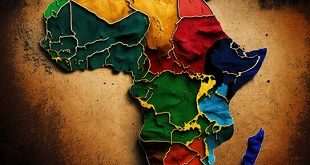
They ordered us to get off the small truck and board a bigger truck. They beat us again. My right ring finger was by now broken and I was in excruciating pain. So I used my weak left hand to hurl myself onto the bigger truck. I was the last to get onto the truck. More beatings and insults continued. Everybody was screaming at us.
Blood everywhere
This was the most worthless moment of my life. I felt worth nothing. We were all criminals; tried and judged by the men in uniform.
From the big truck, they again ordered us to board a smaller mobile police cell. There was blood and body fluids everywhere. Then the driver sped off in the most reckless manner I have ever experienced. People were crying and screaming. We were taken to Kampala Central Police Station.
More insults followed from the police officers at the station. We were badly injured but they ordered us to run up the stairs. We tried to run but they wanted it faster. Inside, they continued screaming at us.
Sit down. Remove shoes. Remove belts, watches. Remove that other stuff. Who told you to go demonstrating? See what they have done to you?
My camera was gone. My cash was gone (Akena says he had about Shs 3.9 million that morning). My spectacles and wrist watch were all gone. My phone was cracked. Things just disappeared like that. I felt totally worthless.
Anyway, a colleague who works for AFP (Isaac Kasamani) soon showed up. He had seen a post on social media of me being tortured and arrested. He found me lying on my back. In pain.They allowed him to take my rucksack which still had my laptop and wallet.
Then we were ordered into the cell. As we headed down into the cell, the policemen advised us to have some money on us. I did not know what for but I took Shs3000 with me. As soon as they opened the gate, we met someone called ‘RP,’ (a prisoner ‘in-charge’ of the cells).
The inmates search every newcomer for everything and anything. When my turn came, the ‘RP’ looked at me and said, ‘Mzee, what do you do?’ I said I am a journalist. He said, “Oh, you’re a journalist? Don’t worry, please go ahead.”
I think I was the most elderly suspect among the people that had just come in. So I sat with my Shs3000. Everybody inside the cell now wanted to come and talk to me. May be they thought my profession could help them.
But my broken finger was hurting badly. It was swollen and the ring had now eaten into the flesh. Someone brought Vaseline. But this was no solution. Then someone was recommended to remove it. He looked brutal. Possibly a hardcore criminal.
He inspected my finger and then said:“Muganda wange, olina okuguma,” meaning, I should “toughen up.”
Using thick, rough fingers and sheer strength, he broke the ring – just like that. I felt this massive relief. Then I suddenly started feeling other aches all over my body. The back of my head was hurting. My left eye felt like it was popping out. Each time, I turned; the pain would grow in intensity.
Meanwhile, more people were still being brought into the cells. Many were wounded, limping, bleeding. They were mostly young men. Everybody looked confused and everyone was sharing their stories.
It was getting dark and difficult to tell what time it was when suddenly I heard someone call my name. “James Akena. James Akena.”
The ‘RP’ who by now knew my name came running:
“My boss, they have come for you. But don’t forget us. I know you are not coming back here.” Some other suspects were screaming their names, their family contacts’ names, phone numbers but there is no way I could remember anything.
I walked up the stairs alongside a trainee journalist whose head was badly battered. I was received by Luke Oweyesigyire (Kampala Metropolitan Police Spokesperson). Oweyesigyire said his superior ordered my release. He sounded apologetic.
My good friend (Kasamani) was still around CPS and he accompanied me out. I was in such immense pain. I was very hungry. I was thirsty. Most shops were closed. So we headed out of the city; to the Ntinda suburb. I had my meal before going to Kampala Independent Hospital for treatment.
It is at this point that we started reflecting on what had happened earlier in the day. We were all in shock. I have worked with these people (Uganda armed forces) in very difficult situations like during the war in northern Uganda.
I started photographing in 1995 and entered the news cycle in 2002. By 2004, I had started photographing in the north, in the IDP camps and you would only access these camps through the military.
I would visit locations where the rebels would have caused havoc, killing and destroying livelihoods. But the Uganda army would come and restore people’s hope. That is how I began to trust them. I believed in them until the day this torture happened to me.Was I targeted? I don’t know.
I am now on medication and I am running between home, police, and hospital. I have a lot of pain. I hardly sleep. I have terrible nightmares. The worst one occurred last night (Aug.28).
It was like the military had come back for me. They were opening the window to my bedroom. The dream was so real I woke up. I got up so many times and even drew the curtains to look outside. Just to be sure.
My reaction to loud sound is strange. This has never been me before. There is this big ache in my ears. Everything is like repeated. I feel like there is a lot of pressure in my head. The doctors are telling me it is post-traumatic experience.
What I went through was not easy. I cannot describe it. I lack the words even in my mother tongue to describe it. The doctor said I should take a rest and I don’t know for how long. This is going to take a heavy toll on me. I live hand to mouth and for one week, I have not earned anything. Even if someone thinks they can pay my medical bills, but how am I going to live?
I was simply doing my journalistic work. I was on duty. That was my duty call. But now, my camera is gone. When I called the UPDF spokesperson (Brig. Richard Karemire), he said, “Worry more about your health first.”
On Sept. 5, Akena posted on his Facebook wall thanking his friends and well wishers who showed concern for his unfortunate incident. “Every day, I am getting better, faster, now,” he said.
 The Independent Uganda: You get the Truth we Pay the Price
The Independent Uganda: You get the Truth we Pay the Price



